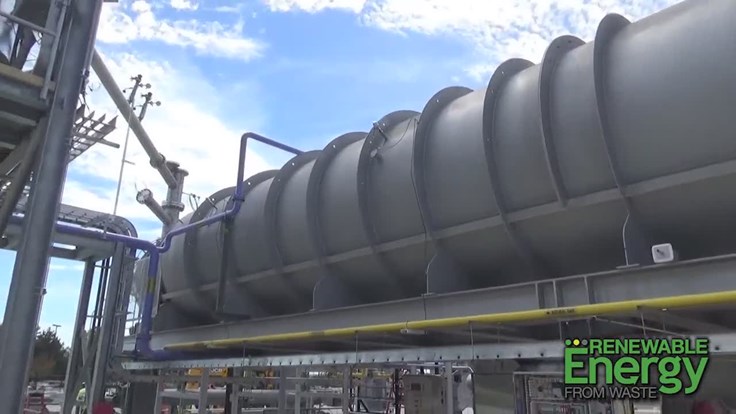Clearfleau, a Bracknell, United Kingdom-based provider of onsite anaerobic digestion (AD) systems for food and beverage companies, says it has handed over to the plant owners its latest bio-energy system at Diageo’s Glendullan distillery in Speyside, Scotland, U.K.
The new installation, which was visited by Scotland Office Minister Lord Dunlop on Aug. 13, 2015, generates bio-energy from byproducts. With the AD system “Diageo is showing how one of Scotland’s most traditional industries can deliver carbon savings and wider environmental benefits,” says Clearfleau.
The project involved close collaboration between Clearfleau’s in-house design, installation and commissioning engineers and their counterparts from Diageo and an extended supply chain, says Clearfleau in its press release announcing the handover.
Following the 2013 completion of an initial AD facility at the Dailuaine malt distillery (also in Speyside), Diageo commissioned Clearfleau to build a second facility. The Glendullan plant, which produces Glendullan single-malt scotch whisky, is very similar.
It receives feedstock from other distilleries in the Dufftown area, fed to the plant in a recently completed pipeline designed to reduce local trucking activity.
Initial results indicate the Glendullan bio-energy facility is generating 2 million cubic meters of biogas per year, producing about 8,000 megawatt-hours of thermal energy for the distillery. That figure is based on processing up to 1,000 cubic meters of distillery byproducts on a daily basis, says Clearfleau.
Clearfleau’s onsite AD technology is designed to convert byproducts into biogas that generates heat for use in the distillation process while also reducing the former overhead cost of disposal.
Clearfleau says the system will reduce the site’s fossil fuel-based energy costs and minimize treatment required for discharge of cleansed water to the nearby River Fiddich.
Engineering challenges involved developing a plant able to handle higher strength materials (such as pot ale), as well as the variability of strength and volume of feedstock being fed to it, says Clearfleau.
“We’re very proud of our record in investing in cutting-edge sustainable technology at our distilleries,” says Keith Miller, Diageo’s distillation and maturation director. “The bioenergy plant at Glendullan is the most recent example of how we use innovative technology which harnesses the potential of the natural raw materials we use in the distillation process to generate renewable energy.”
Scottish Office Minister Lord Dunlop states, “The commitment to powering distilleries like Glendullan with sustainable energy, recycled from the co-products of the whisky-making process, is also exactly the right thing to do. Good for the planet, good for the whisky industry and good for the Scottish economy.”
Adds Craig Chapman of Clearfleau, “This project, a result of close collaboration between Diageo and Clearfleau, shows how British technology can enable a traditional but energy intensive Scottish business sector to embrace the circular economy, reduce its costs and create a more sustainable basis for production. However, wider adoption of this technology requires ongoing support for renewable energy. The Scottish and British Government should be working together to support the development of indigenous renewables technologies and their adoption in a range of industry sectors, helping to deliver our long-term sustainability targets.”




